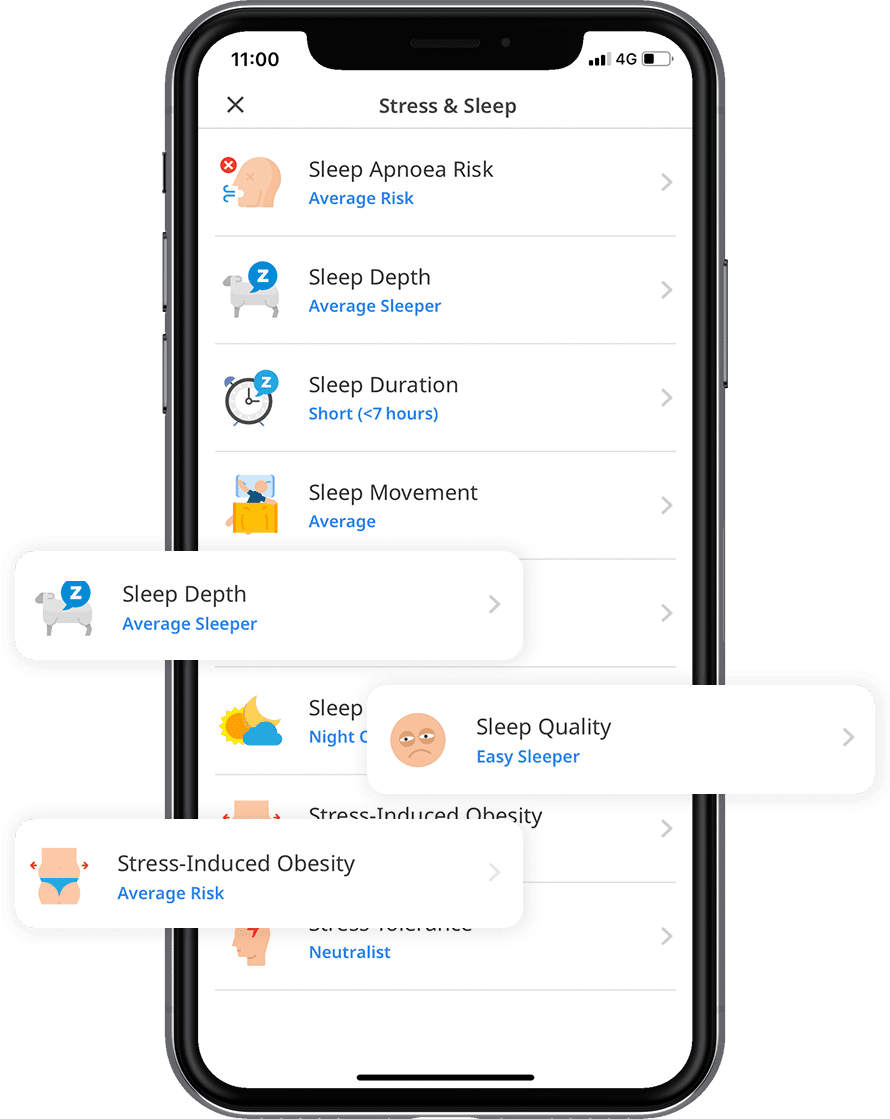
Valentine’s Day is a day for celebrating your love. But do you know all the little details about your Valentine?
Whether you’re a brand new couple or you’ve been together for years, you probably don’t know everything about each other just yet.
The beauty of relationships is that you’ll be able to keep exploring and discovering new things about your partner or friend every day for the rest of your lives.
But do you know the teensy bits of them, especially when it comes to their health and potential risks?
From their diet to how likely they are to trip themselves over a bike ride, there are a few pieces of information about them that may surprise you!
1. How your Valentine tolerates stress
You may not know their stress tolerance: Whether it be working-from-home with stressful Zoom calls where your teammates aren’t aligned on the exact details, or your kids continually crying for attention at home while schools are closed, we all experience different levels of stress on a daily basis. This can have an effect on our health and wellness in general.
But did you know that your partner’s stress tolerance may be different from yours?
Some individuals seem to have it all together and even thrive under pressure, while others seem to react in the opposite way.
It is common for people to develop a tolerance for certain types of work. They could be a warrior or a worrier. Sometimes in between, but it really depends.

2. What your Valentine should be eating
If you’re on a diet with your partner, there are things that they might not know.
There’s always the temptation to have an extra protein bar for a quick snack, but little do they know that it weighs a lot of carbs.
While tons of carbs don’t seem like a significant issue, some of us can be predisposed to carbohydrate sensitivities more than others.

3. Where your Valentine’s roots are
Knowing your partner’s ancestry can be a crucial factor in a relationship. Knowing where they come from, their culture and heritage are crucial to understanding them better.
Exploration is essential because our ancestors have left us their DNA which shapes who we are today. Learning more about their roots helps draw closer together by providing insight into your partner’s family history.
4. How likely your Valentine is to trip oneself
Most people know that they are more likely to get injured than their partner. They also might be aware of how difficult it is for them to heal, too.
Especially in the context of an exercise, if you are the one with the most injuries, there may be a good reason why: your partner is at risk of hurting themselves more than others.
There are several reasons why this is the case, such as improper training technique, lack of stretching warm-ups or incorrect equipment support.
But did you know that your partner could be genetically-inclined towards higher injury risks?
That’s right. If they have a certain genetic mutation in Type V collagen, their chances of injury are further increased. Type V collagen is an important fibrous protein in muscles and tendons – having mutations there would make them likely to trip at really random, but embarrassing scenarios.

5. When your Valentine usually feels sleepy
One of the biggest challenges when couples start living together is getting used to their significant others’ routine, including having someone sleeping – moving, turning, and waking up – next to you. Have you ever wondered what your partner’s sleep pattern says about them? When does your partner usually fall asleep?
If they stay up at night, are they the life of the party or do they get things done while everyone else is sleeping? Or are they an early bird who gets up and starts their day with coffee before the sun rises?
This is where your Valentine’s DNA can teach you a few things too.
While genes are known to influence an individual’s circadian rhythm, our internal body clock determines our sleep preference. While you may be a Morning Lark, your Valentine could be a Night Owl!

Why it’s important to take a DNA test
Science has not been too vocal, but genetic testing has been a strong identifier of your own body.
It tells you whether you are inclined to develop diseases or cancer risks down the line.
But why would you take DNA tests if they might tell you something terrible?
There are many other reasons to have a DNA test. Some people want to know their ancestry; some want to know how they sleep and what diet is best for them.
The CircleDNA test can also tell your genetic predisposition towards injury risks, or whether you are a morning lark or night owl.
Taking your DNA test isn’t like a crystal ball. They are not determinative of all health outcomes. However, DNA testing can be an indicator for things you can take charge of in the present.
On top of searching for information related to our ancestry, DNA testing continues to be readily available in the medical sector each year.
It is growing and is shaping into a revolutionary approach towards preventative care. Being aware of what medication you are allergic to and predicting what health risks you are likely to develop. Hence, DNA testing tells you what you can prevent in the coming future.
What’s love got to do with it?
Research suggests that a person who makes a healthy behaviour change has a greater impact on others’ positive health behaviours than one whose behaviour is consistently healthy.
There is never a better time to express love.
We can say words, think about gifts and even put time into it. But with the Gift of Health, embarking on that journey to wellness together is the best way to act on it.
From CircleDNA, we present to you, our V’day special 💗 Unlock your insights now!
